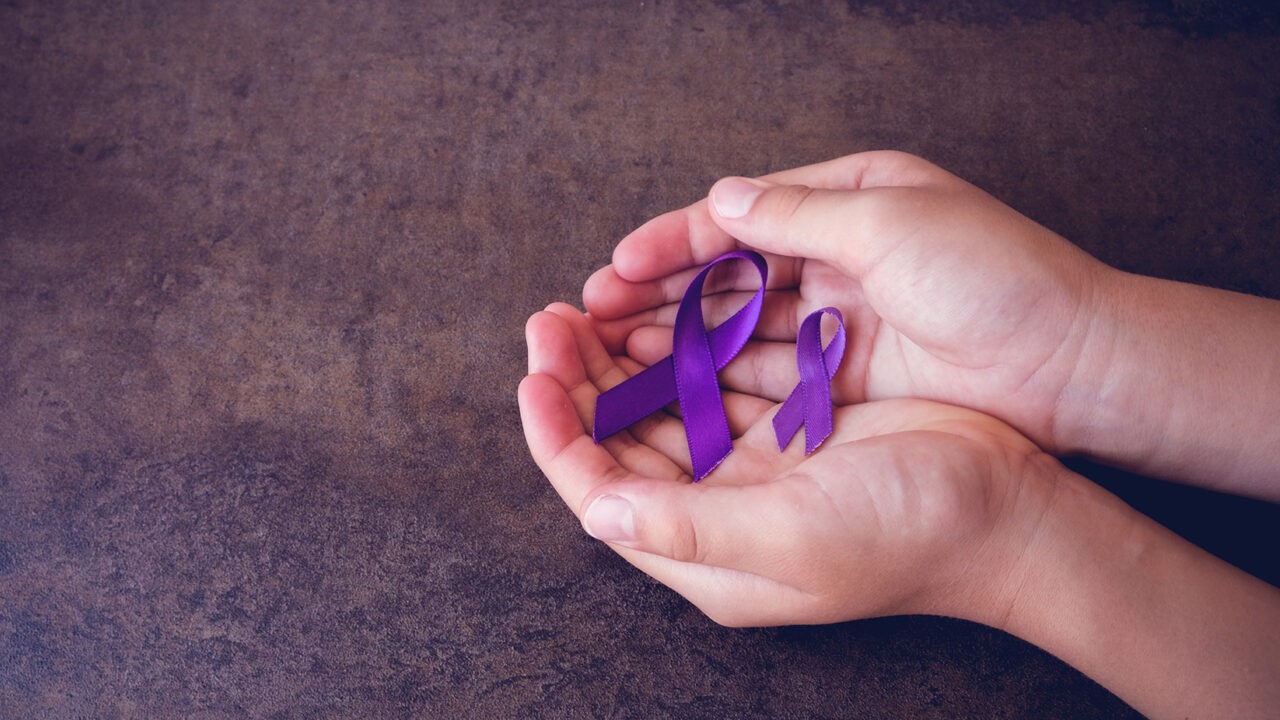Jewish tradition teaches that every person is created b’tzelem Elohim–in the image of God. When abuse shatters that dignity, it is our responsibility as a community to respond with empathy and support. Domestic violence is often hidden, yet it affects families in every community including our own here in South Jersey.
This October, during Domestic Violence Awareness Month, we are called to stand together with survivors, drawing strength from our shared values of compassion, solidarity, and courage. We’re reminded that for many in our community, the need for safety and support extends far beyond a single month of recognition. At JFCS, we believe every person deserves to live free from fear and abuse.
Domestic violence affects families across all backgrounds, faiths, and circumstances, taking many forms–physical assault, emotional manipulation, sexual coercion, financial control, and digital harassment. Behind each instance lies a fundamental violation of human dignity.
Understanding the Scope
The statistics are sobering: According to the CDC (May 16, 2024), about 41% of women and 26% of men have experienced contact sexual violence, physical violence, or stalking by an intimate partner. Over 61 million women and 53 million men have experienced psychological aggression by a partner. For individuals with disabilities, these risks are even higher.
Within Jewish communities, domestic violence affects 15-25% of households. Among survivors, over 90% experience emotional, physical, and financial abuse, while more than 80% face additional challenges, including custody disputes and social isolation. These represent our neighbors and community members who need understanding and support.
Stories of Courage and Renewal
Maria, 78 (names have been changed to protect privacy) had endured decades of abuse before reaching out to Project SARAH (Stop Abusive Relationships At Home) in September 2023. Through weekly support groups, she rebuilt her self-worth, learned to establish boundaries, and with emotional and financial support, filed for divorce. Recently, she joyfully shared news of her engagement–proof that renewal can bloom at any stage of life.
Annie reached out in January 2023 after fleeing an abusive marriage. Our Project SARAH staff–Hilary Platt, Marci Rosenstein, and Cheryl Herzfeld–provided comprehensive support, including food assistance, legal resources, and counseling connections. Through our survivor support groups, Annie found healing and strength to help her son leave his own dangerous relationship. Today, she is preparing for marriage to a man who treats her with kindness and respect.
Meeting People Where They Are
Project SARAH meets survivors wherever they are in their journey–even if that means they’re still living with their abuser. In the past year, we’ve worked with 71 clients, offering case management, food and housing assistance, counseling referrals, financial aid, and advocacy support.
Prevention and Education
Our prevention programs, Building Healthy Relationships and Packing for College, equip young people with tools to recognize red flags and build healthy relationships. Last year, these initiatives reached 1,721 tweens and teens, helping interrupt cycles of abuse before they begin.
Breaking the Silence Together
Domestic violence thrives in secrecy. As a community guided by Tzedek (justice) and Chesed (loving-kindness), we can break that silence through checking in on friends, sharing resources, or listening without judgment. Every small act of support can help someone feel less alone.
Finding Help and Hope
If you or someone you know needs support, call JFCS at (856) 424-1333 and ask for “Sarah.” For 24-hour crisis assistance:
• Camden County: (856) 227-1234.
• Burlington County: (856) 234-8888.
• Providence House: (800) 246-8910.
• Gloucester County: (856) 881-3335.
• National Domestic Violence Hotline: (800) 799-7233.
As Maria and Annie remind us, it is never too late to reclaim your life and begin again. But no one should have to do it alone. As a Jewish community rooted in Tzedek and Chesed, we share a collective responsibility to break the silence, support survivors, and build a future free from abuse. Together, we can ensure that every person in our community has the chance to live with safety, dignity, and hope.

